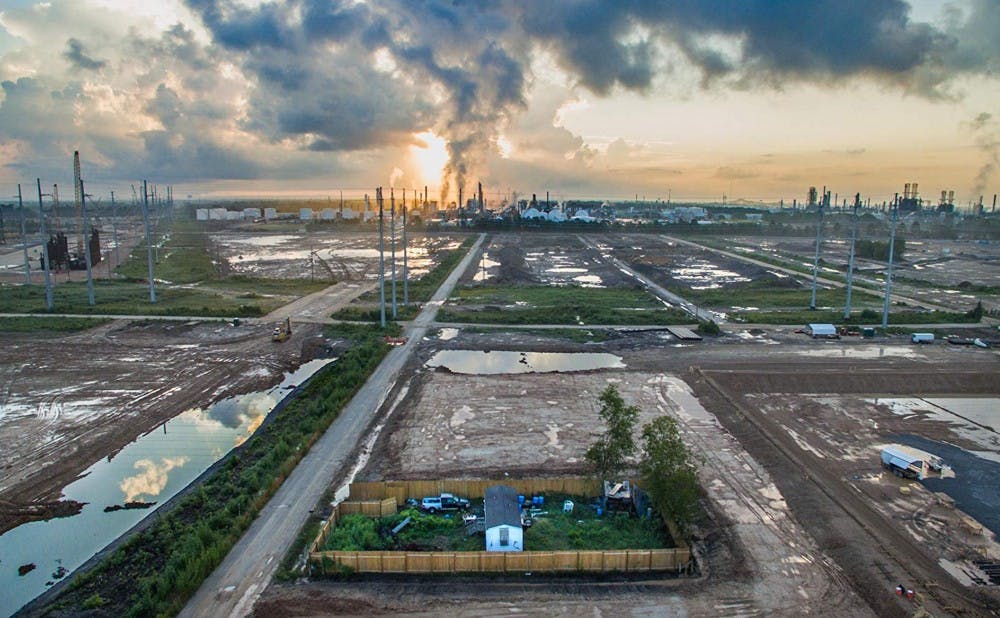“Welcome to beautiful downtown Mossville. Population: one.”
As I sat in the U.S. premiere of the documentary “Mossville: When Great Trees Fall” at the 2019 Full Frame Film Festival, I thought I heard wrong. But as the story unfolds, it becomes apparent that Mossville, Louisiana is a town swallowed by the marriage of industrial greed and environmental racism. Stacey Ryan is its only remaining resident, struggling to fight for the right to the land his family has lived on for generations, as well as the toxic fumes emitted by the surrounding 14 petrochemical plants that threaten to take down every living cell in his body every night.
Mossville was once a self-sufficient haven for freed slaves amid the horrors of Jim Crow. It was an everyone-knows-everyone kind of town, where gardens bring back the flowers of May every year, where kids laugh their childhood away and experience their first heartbreak, where the elderly know they can rest soundly in all that they are familiar with. But then the South African apartheid-born chemical giant Sasol came to the U.S. and circled Mossville as the future site of its $21.2 billion industrial project, the largest yet in the Western hemisphere.
The residents of the community were unwilling to leave their homes where their roots are buried and their identities defined. But between ancestral history and the health and future of their children, all chose the latter in the end, except Ryan, who promised his parents to fight this injustice. He watched them develop health complications as Sasol invaded the neighborhood with its power plants and eventually lost them to cancer. As his water, power, and sewage are all cut off, he uses his mechanical knowledge to build electrical engines and endures occasional harassment from Sasol.
In a way, Ryan is a superhero, taking on the villain of corporate selfishness. But the camera humbles him and paints him as your nice neighbor who always mows your lawn too. Yes, Ryan is modest, personable, quiet but extremely resilient. Just like any loving father who wants his children grow up in “the best place to raise kids,” just like any sweet son who wants to fulfill his parents’ dying wishes — a paradox that makes his story so viscerally moving and powerful.
He builds fences around his parents’ old house. He plays with his son in the neighborhood playground that has no other kids. He walks around the power plants and wonders if the laughter of his childhood had all been a dream. He watches his parents’ testimonial videotape and cries. And I cry too.
But the noises of the chemical plants are louder and louder, while Stacy’s voice gets weaker and weaker. Eventually, his body gives out before his mind. He reluctantly signs Sasol’s buyout deal but is relieved to be able to move away with his family — who stayed in a nearby town while Stacy was in Mossville — from all the toxins.
Except, he had to spend most of his buyout money on medical bills.
Mossville is not an exception, just an example. From Secunda, South Africa to Mossville, USA, minority communities are treated as second-class citizens whose rights are not so right and freedoms not so free. Corporate greed does not end at the erasure of history, the desecration of ancestry. It also does not end at the death toll of local residents or one man’s lifetime fight. But it might end at everyone taking an action.
Get The Chronicle straight to your inbox
Signup for our weekly newsletter. Cancel at any time.

